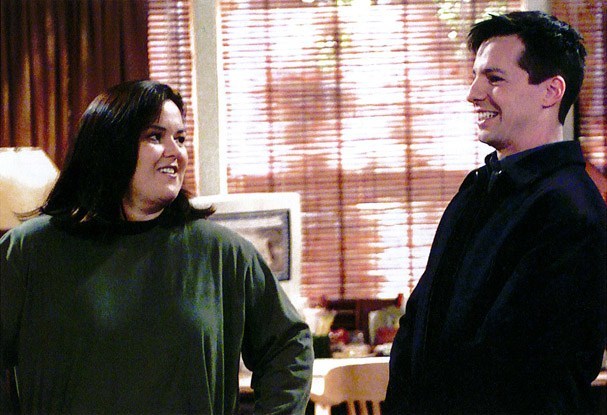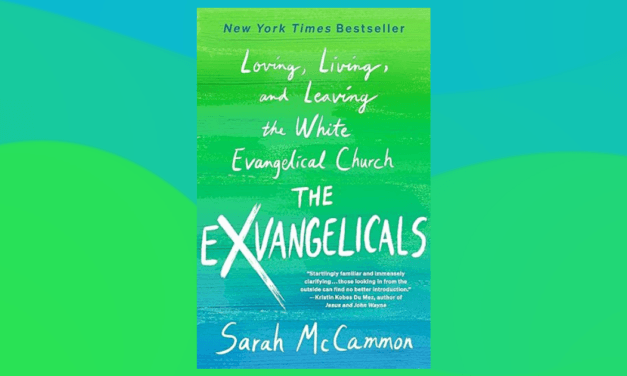This article first appeared in the Practical Apologetics column of the Christian Research Journal, volume 25, number 1 (2002). The full text of this article in PDF format can be obtained by clicking here. For further information or to subscribe to the Christian Research Journal go to: http://www.equip.org
The latest celebrity to “come out of the closet” is nudging America’s debate over homosexuality in a new direction. Entertainer Rosie O’Donnell, now openly lesbian, asks not only for the acceptance of homosexuality in general but also for the approval of gay parenting.
Her crusade was sparked when her home state of Florida (one of the three states in the country that still disallow homosexuals from legally adopting) refused her request to adopt a child for whom she was already providing foster care. She is now suing the state to overturn its adoption restrictions.
O’Donnell is, of course, requesting more than adoption rights. Through television interviews, articles, and even a guest spot on the popular Nickelodeon Kid’s Network, she’s challenging our basic concepts of normal behavior, and in this crusade she is formidable. Rosie has icon status, and few would argue her appeal: talk show host, standup comedienne, film star, Broadway actress, children’s advocate, and, in general, a warm and altogether likeable woman. So when someone of her stature says, “Gay is ok,” people listen.
But should they? Here the problem of personality over principle comes into play. Celebrity endorsement carries tremendous weight — so much so that fundamental principles of right and wrong can be blurred simply because a beloved public figure questions them. In a culture that allows its entertainers to set and revise moral standards, Christians are challenged to articulate not only the truth but also the means by which truth is determined. To meet this challenge we can pose and respond to two basic questions regarding Rosie O’Donnell’s crusade.
Can Homosexuality Ever Be Natural? In attempting to normalize lesbianism, O’Donnell has publicly relied on two common but generally unchallenged opinions: (1) 10 percent of the population mate with members of the same sex and (2) homosexuality is inborn. She explains: “I’m not really disagreeing with nature — because in every animal kingdom and in every species, 10 percent of the population is homosexual”;1 and, “It’s a fact of nature — the fact that you were born homosexual.”2 Both theories, while widely accepted, are suspect, as are the conclusions often drawn from them.
The 10 percent figure has its roots in sex researcher Alfred Kinsey’s 1948 study titled Sexual Behavior in the Human Male, which listed his findings after interviewing 5,300 men, 10 percent of whom claimed to have been homosexual for at least three years.3 Had Kinsey’s subjects represented the general population, his statistics might hold weight. Since 25 percent of the men he interviewed were prisoners (a documented but seldom mentioned fact), however, his subjects could hardly be considered an accurate cross section of the male population.4 Subsequent surveys have indicated that between one and three percent of the population is homosexual.5
The “Born Gay” theory fares no better under scrutiny, since none of the studies that have suggested homosexuality is inborn have been successfully replicated. The researchers who conducted these studies (most of whom are openly gay) have admitted extreme shortcomings in both their methodology and conclusions.6
Even if homosexuality could be proven to be inborn or common would Rosie be right in claiming that “inborn” or “widely practiced” equates “normal”? This question brings the Judeo-Christian concept of Created Intent into sharp contrast with Rosie’s approach. In both Testaments, Scripture teaches a specific divine intention for sexual behavior independent of genetics or subjective experience. Rosie errs not only by attempting to normalize homosexuality but also in the way she reaches her conclusions on normality itself. If we are not created beings but have evolved randomly and answer to no one, then she might be correct in assuming we can determine morality by consensus or genes. If we are created beings who therefore will answer to a Creator, however, it behooves us to determine how the Creator, not we, defines “normal.”
If Homosexuality Is Unnatural, Does That Automatically Mean Homosexuals Can’t Be Good Parents? If we pit a worst-case heterosexual couple against a best-case homosexual one, we’d have to concede a victory to the gay couple. Rosie employs this tactic when she offers the misconduct of many heterosexuals as evidence that “straight” is not always “good”: “There are some heterosexuals that have heterosexual behavior that is appalling sexually, that is deviant and bad and not really moral.”7
Drawing on the unhappy conditions of her own childhood, she states, “I was raised in a heterosexual family, and that was not a good family for children.”8 She then concludes that sexual orientation is irrelevant in parenting by saying, “I think somebody’s values are shown best in the way they treat others and their children, and the world in general. It’s not necessarily the way that they respond sexually and emotionally to the person they choose to live with.”9
A child raised in a crime-infested ghetto by two violent, drug-abusing heterosexual felons certainly would be better off with Rosie and her partner in their well-appointed Florida estate. Worst-case–best-case comparisons, however, aren’t helpful. The question is not whether some heterosexuals do bad things — nor do we question the capacity of homosexuals to do good things. We appreciate the myriad of cultural and professional contributions many of them have made and do make. Our concern, rather, is with Rosie’s attempt to blur any critical distinction between homosexual and heterosexual parenting.
Psychologist Dean Byrd, vice president of the National Association for the Research and Treatment of Homosexuality, shares this concern: “Studies demonstrate there is, in fact, a difference between non-heterosexual and heterosexual parenting. Children raised by non-heterosexuals are more apt to experience gender and sexual confusion, they are more apt to become promiscuous, they are at greater risk of substance abuse or suicide.”10
Researcher Barbara Eisold conducted such a study and came to similar conclusions in her report “Recreating Mother,” in which she asserts the need for a mother. Observing the developmental problems of a boy named “Nick,” who was raised by two homosexual men, she was struck by Nick’s desire for a mother figure as evidenced in his habit of fantasizing an imaginary “Mommy”: “How do we explain why this child, the son of a male couple, seemed to need to construct a woman — ‘Mother’ — with whom he could play the role of a loving boy/man?”11
Her explanation is in sync with Scripture and common sense: “Eisold sees some normal, programmed developmental forces at work in a boy who has no mother: if he has none, he will need to make one. This must be part of what it means to be human: children need both mothers and fathers.”12
Researcher Harry Biller draws similar conclusions while studying infants raised by a lesbian couple without fathers: “Differences between mother and father can be very stimulating to the infant — the infant who receives verbal as well as physical stimulation from both mother and father profits from the experience. Infants with involved fathers were usually at a developmental advantage. Well fathered infants are more secure and trusting in branching out in their explorations.”13
No doubt Rosie and other pro-gay apologists might offer examples of seemingly well-adjusted children raised by gay couples, but the principles behind the studies have been verified clinically and historically: Children raised in a stable heterosexual home fare better than those raised by a homosexual couple, no matter how stable. The difference between the two homes lies not so much in the nature or personality of the parents but in the contrast of gender, which is built into heterosexuality and which homosexuality, by its nature, must lack. The male-female complement, a critical part of Created Intent, is praised in the Bible and confirmed in secular observations. No matter how healthy, likeable, or sincere a homosexual couple may be, they cannot offer a child a part of what is in that child’s best interest: a father and a mother.
This standard may not always be reached — single parent homes come to mind — and children raised in a less than ideal situation may emerge strong and healthy nonetheless. Author Dale O’Leary, however, illustrates the matter convincingly when he recounts a childhood friend who’d lost his foot in a lawnmowing accident. He describes his friend Charley as “happy, joking, and fully adjusted to his prosthesis.” Then he asks pointedly, “Should Charley’s ability to cope with his dramatic loss lead us to conclude that one foot is as good as two?”14
In many ways, Rosie O’Donnell has done well in life. She continues to do well by concerning herself with the welfare of children. She would do better, though, to admit that, as much as she cares for kids, neither she nor any same-sex couple can offer the full benefit of a family.
— Joe Dallas
NOTES
- Transcript of an interview on The O’Reilly Factor, 26 March 2002 (www.foxnews.com/story/0,293348824,00.htm1).
- Ibid.
- Alfred Kinsey, Sexual Behavior in the Human Male (Philadelphia: Saunders Press, 1948), 625.
- Judith Reisman, Kinsey, Sex and Fraud (Lafayette, IN: Huntington, 1990), 9.
- Joe Dallas, A Strong Delusion (Eugene, OR: Harvest House, 1996), 126.
- Ibid., 110–16.
- The O’Reilly Factor transcript.
- Ibid.
- Ibid.
- Den Byrd, “Pediatrics Group Endorses Homosexual Adoption,” http:/www.narth.com/docs/endrses.htm.
- Dale O’Leary, “Buying Mother,” http://www.narth.com.docs/diversity.html.
- Ibid.
- H. Biller, Fathers and Families: Paternal Factors in Child Development (Wesport, CT: Auborn House, 1993), 12.
- Dale O’ Leary, “Who Needs Dad?” http://www.narth.com/docs/whoneeds.html.









